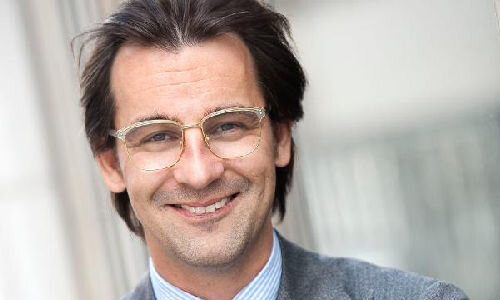An industry report showing that over half of investments made in Switzerland last year were sustainable, sits uncomfortably with last week’s police raid at German asset manager DWS on claims of greenwashing. ESG expert Sasja Beslik told finews.com why he thinks the debate in sustainable finance is coming to a head.
Authorities sent spine-chilling shivers through the financial industry last week after raiding offices belonging to the German subsidiary of DWS on claims of overstating the greenness of its funds. For ESG expert Sasja Beslik, the message is clear:
«The Germans are setting an example,» Beslik said, adding that he expects more raids to follow.
There are many management teams around Europe worried about what they have communicated in the past regarding their sustainability offering, and who are asking themselves «could we be next?» Beslik said.

Sasja Beslik, chief investment officer SDG Impact Japan (Image: J. Safra Sarasin)
Beslik considered a pioneer in sustainable finance, headed sustainable finance development at the Brazilian-Swiss private bank J. Safra Sarasin until last year. Before this, he was responsible for investments with a focus on the environment, society, and good governance (ESG) at the Scandinavian fund provider Nordea Asset Management. He is also an author and blogger on sustainability issues.
Greenwashing accusations are omnipresent, with the most recent criticism coming from Greenpeace Switzerland accusing the industry association Swiss Sustainable Finance (SSF), of «diluting» the definition of sustainability by including investment criteria loosely related to ESG but failing to have a real impact on the environment or people's lives.
Moreover, in being too lenient the industry association is encouraging greenwashing, Greenpeace Switzerland said.
Cashing In
Given that the volume of sustainable funds in Switzerland which according to an SSF report amounted to 800 billion Swiss francs ($821 billion) last year, corresponding to an increase of almost one third compared to 2020, the strong demand could be part of the problem.
However, «ESG is not a nice-to-have or a cheap way of positioning yourself on the market and making huge fees on products that are mediocre,» Beslik said. For him, investing sustainably is an added value to investments and comes with a premium.
«Those who think they can easily scale up ESG investments and do it for free, are fooling themselves. Buying the MSCI index, taking the top quartile of each sector, and then saying this is our universe, this is what we invest in. Job done, is not sustainable investing,» he said.
Beslik, who recently stepped into the chief investment officer role at SDG Impact Japan where he also runs the NextGen ESG Fund Japan, prefers to keep his investment approach «as close to private equity style investment as possible,» he said.
He describes sustainable investing as «a contact sport,» where portfolio managers need to be prepared to get dirty on field visits, engage with companies actively and track them closely, which is why his fund is limited to 30 names with an investment horizon of five to seven years.
For him, ESG investments with more than 70 holdings that track certain benchmarks are nothing but «pure vanilla and fail to really make a difference.»
Zero Tolerance
After admitting that greenwashing is a problem, the Asset Management Association Switzerland (AMAS) has proclaimed zero tolerance for greenwashing and is currently working on industry guidelines based on self-regulation for sustainable asset management which will be binding for the association's members.
In case these guidelines are not sufficient the Federal Council has instructed the Ministry of Finance to propose legislation by the end of the year on how to avoid greenwashing.
Regardless of the framework that prevails, for Beslik it is high time that asset managers clearly indicate the results achieved after a certain period in their ESG funds rather than referring to companies’ future promises to improve.
«If you are really doing ESG investments, you need to be able to show exactly what you've done, and how you've done it,» he said.
Additional reporting by Samuel Gerber




































